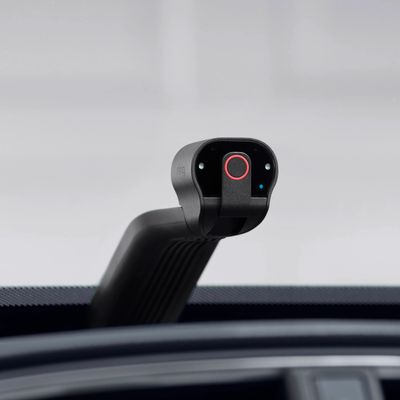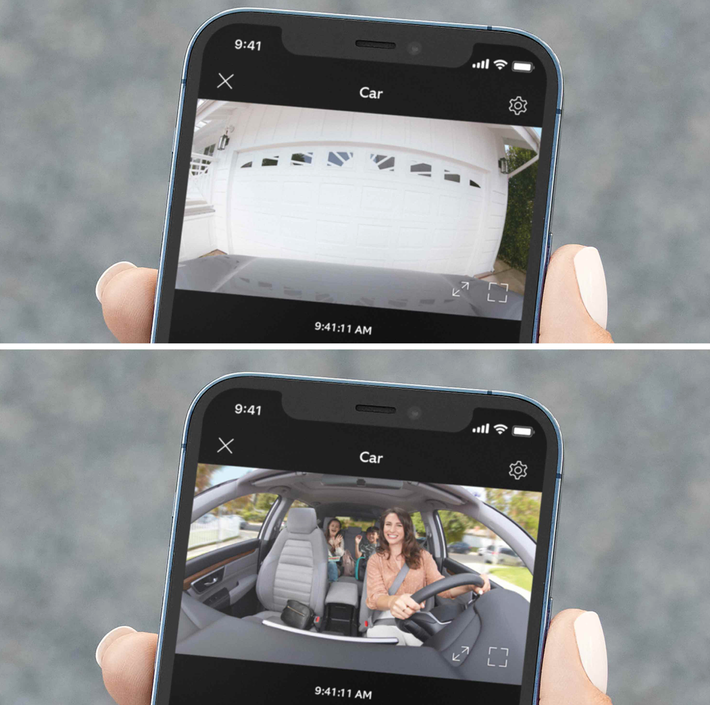
Amazon on Thursday opened preorders for a long-awaited addition to its vast catalogue of Ring personal surveillance devices: the Car Cam. Starting at $200, the car cam includes front- and rear-facing cameras, motion alerts, GPS tracking, and voice communications. It is, as its name suggests, a Ring for cars — a comprehensive monitoring system for your vehicle and whoever might find themselves in or even near it.
Straightforward dashboard and passenger cameras have been popular in much of the world for well over a decade, perhaps most famously in Russia, where widespread adoption was driven by fears of insurance fraud and lack of trust in police. While dash cams are widely available in the United States — subreddits like /r/idiotsincars are never short of high-quality content — adoption has been fairly limited. They are most popular, or in some cases mandated, among people who spend time on the road professionally: rideshare drivers, delivery workers, truckers, and law enforcement. Some of these drivers have an especially high risk of ending up in a dispute in need of later resolution. Others are simply workers under new forms of surveillance by their employers. Amazon, for its part, already uses onboard video cameras to monitor some of its contractors’ delivery vehicles, tracking, among other things, the number of times drivers yawn.
Ring’s Car Cam is a variation on the dashcam concept, with a few features that allow recording while in motion, but it’s better understood as an extension of the company’s home surveillance devices, which are already wildly popular in the United States. Ring has sold millions of video doorbells — according to one estimate, more than 1.7 million in 2021 alone — and offers a range of connected cameras as well as full-fledged security systems. Ring’s marketing has always emphasized security, promising users 24/7 monitoring and recording of their front stoops; the company has worked with law-enforcement agencies around the country, creating a multimillion-node semi-private surveillance network in the process. It is, for many users, a way to see who is at the door. It’s also bluntly synergistic. Amazon delivers billions of packages to millions of homes. When something goes wrong — a stolen or damaged package or an otherwise incomplete delivery — stoop surveillance can be useful to the company, whose customers might be able to produce evidence that implicates third-party couriers or thieves. Ring suggests its cameras as a solution to the Amazon-era “porch piracy” phenomenon, supplying users with footage of thefts as well as the ability to confront anyone at their door by voice in real time. Doorbell cameras are easy to spot, thwart, or simply ignore, but footage of petty crime recorded on Ring cameras has become a fixture of local news stations around the country.
Like Ring’s home cameras, which are most and most frequently actually useful for knowing whether or not it’s safe to open the front door, the Car Cam is marketed as a security solution. In a promotional video, the company portrays a woman getting a notification on her Ring app that something is going on with her car. She opens the camera and sees a thief. She yells at him; he runs.
Also like Ring’s home cameras, however, it’s easy to imagine the much wider varieties of surveillance that such a camera will enable and encourage. Doorbell cameras may provide peace of mind for some users. For plenty of others, they’re a source of paranoia and an outlet for busybody impulses. (Check Nextdoor, or Ring’s own wildly popular Neighbors social network, for evidence that getting a notification every time someone walks by your house can turn you into a nervous wreck or worse. Or watch Ring Nation, an Amazon-endorsed America’s Funniest Home Videos–style clip show, to see how seamlessly America’s porch-surveillance dragnet can be turned into entertainment.) Home surveillance by default often amounts to recording people going about their jobs, neighbors minding their own business, friends chatting while waiting outside your door, and especially family members.
Just as Ring cameras imported surveillance expectations from commercial spaces into residential contexts, the company’s foray into dashcams extends its doorbell cameras’ why not? surveillance proposition into cars and will similarly prompt its customers to accept a range of previously extreme behaviors as routine, or normal, in exchange for a sense of personal security or awareness of property: not just the recording of potential external antagonists, but the default surveillance of your passengers, which is to say, in many cases, your family or friends.
The possibilities for intrafamily surveillance alone are also a lot to think about, whether you’re a parent, child, or spouse. (Why did you disconnect your Car Cam last night?) With an optional cellular add-on, Ring’s Car Cam promises to let users “see what your Car Cam sees and speak to anyone inside the vehicle from anywhere when your car is away from home.” Its motion notifications will show up in the Ring app right next to the alerts triggered by deliveries, passersby, and squirrels, providing a heightened sense of security or maybe just imminent peril.
The rise of mass private surveillance is a symptom of a low-trust society, but it’s also the sort of thing that might help create one — an incredible flywheel, to borrow a term from Amazon. The consequences of a camera in every car are difficult to predict, except for one: They will produce a lot of content.































